Green Supply Chain Trends Transforming Morocco in 2026
)
Morocco has demonstrated remarkable economic resilience in recent years, thanks to robust macroeconomic policies and proactive government responses to global challenges. As we move through 2025, the nation continues to make significant strides in sustainable development, particularly in transforming its supply chains to meet environmental goals.
With real GDP growth maintaining steady rates and investments rising by 9.1% [World Bank], Morocco is positioning itself as a regional leader in green supply chain innovation. The transformation is occurring across multiple fronts, from policy development to technological integration, resulting in a more sustainable economic landscape.
Key green supply chain trends emerging in Morocco
Stronger policies driving supply chain sustainability
The Moroccan government is implementing robust policies to enhance supply chain sustainability. Recent studies on Industry 5.0 in Morocco highlight how factors like circular future mobility and sustainable supply chain practices are becoming integral to business operations [MDPI]. These policies are responding to increasing stakeholder scrutiny, with over 50% of assessed regions facing high or extreme risk of ESG violations [Supply Chain Strategy]. Moroccan businesses are working to align their sustainability goals with actionable strategies, though many still struggle with supplier visibility issues.
Shift towards eco-friendly future mobility and transport systems
Morocco's transport sector currently accounts for 31% of total CO2 emissions, with a 99% dependency on fossil fuels [Changing Transport].
To address this, the country is developing a comprehensive policy framework focused on inclusivity, accessibility, and safety in transportation. The government aims to reduce energy consumption in the transportation sector by 24% between 2017 and 2030 and increase renewable energy capacity in its electricity mix to 52% by 2030 [Changing Transport]. Companies listed on the Casablanca Stock Exchange are now required to provide detailed sustainability reports, further driving the shift toward eco-friendly future mobility [NMD Journals].
Growth of sustainable procurement across industries
Sustainable procurement practices are gaining traction across various industries in Morocco. Research confirms that sustainable supply chain practices significantly enhance the logistical performance of businesses [NMD Journals].
A recent study assessed six key factors for supply chain sustainability: circular future mobility, Industry 5.0 technologies, intellectual level and learning, future mobility innovation, sustainable supply chain practices, and managerial strategy [MDPI]. The findings highlight the crucial role of Industry 5.0 technologies in achieving sustainable supply chains when combined with these other factors.
Game-changing green future mobility strategies seen in 2026
Adoption of local sourcing to enable green transport
Morocco is proactively addressing climate change through its Framework Law 99.12, which established the National Charter for Environment and Sustainable Development.
Local sourcing has become a key strategy for reducing transportation emissions, with Moroccan companies increasingly prioritizing regional suppliers to minimize transportation distances. This shift not only reduces carbon footprints but also strengthens local economies and creates more resilient supply networks.
Rise in demand for energy-efficient warehousing
Energy-efficient warehousing has become a cornerstone of Morocco's green future mobility revolution in 2025. Businesses are investing in facilities powered by renewable energy, particularly solar power, leveraging Morocco's abundant sunshine. Advanced building materials, smart climate control systems, and energy-efficient lighting have become standard features in new warehouse developments. These facilities not only reduce operational costs but also significantly lower carbon emissions.
AI-driven planning improves supply chain efficiency
Artificial intelligence has transformed supply chain planning in Morocco by 2025, creating smarter, more efficient future mobility networks. AI algorithms now optimize routing, predict maintenance needs, and reduce empty miles in transportation. Machine learning models analyze historical data and real-time conditions to forecast demand more accurately, reducing overproduction and waste.
These technologies enable more precise inventory management, minimizing storage requirements and associated energy consumption.
Conclusion
Morocco's green supply chain transformation in 2025 represents a significant shift in how businesses approach future mobility and procurement. The convergence of stronger sustainability policies, eco-friendly transport systems, and innovative green future mobility strategies is creating more resilient and environmentally responsible supply chains.
As local sourcing, energy-efficient warehousing, and AI-driven planning become mainstream, Moroccan industries are demonstrating that environmental responsibility and economic success can go hand in hand. These developments not only position Morocco as a regional leader in sustainable business practices but also contribute significantly to the country's ambitious climate goals for 2030 and beyond.
FAQs
What are the main green supply chain initiatives in Morocco?
Morocco's primary green supply chain initiatives include the implementation of circular future mobility principles, the integration of Industry 5.0 technologies, and the development of comprehensive sustainability reporting frameworks. The government has established policies like Framework Law 99.12 that drive environmental responsibility across supply chains. Additionally, Morocco has committed to reducing energy consumption in the transportation sector by 24% between 2017 and 2030 [Changing Transport], supporting this goal through investments in renewable energy and sustainable transportation infrastructure.
How is green future mobility affecting Moroccan industries in 202?
Green future mobility is transforming Moroccan industries by improving operational efficiency while reducing environmental impact. The shift toward local sourcing has strengthened regional economic ties and reduced transportation emissions. Energy-efficient warehousing has lowered operational costs and carbon footprints. AI-driven planning has optimized future mobility networks, reducing waste and improving service levels. These changes have particularly impacted the manufacturing, agriculture, and retail sectors, helping companies comply with stricter regulations.
What benefits does sustainable procurement bring in Morocco?Sustainable procurement delivers multiple benefits to Moroccan businesses and the broader economy.
It enhances supply chain resilience by diversifying supplier networks and reducing dependence on distant markets. Companies implementing sustainable procurement practices report improved brand reputation and customer loyalty. Research confirms that sustainable supply chain practices significantly enhance the logistical performance of businesses [NMD Journals], leading to competitive advantages. Additionally, sustainable procurement supports the country's climate goals and helps businesses comply with evolving regulations.
 " alt="">
" alt="">

